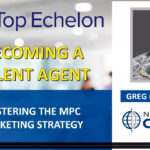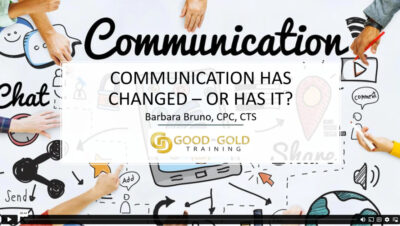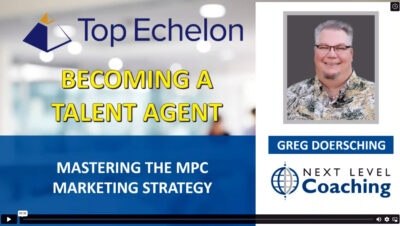For those of us in the recruiting profession, staying in business in recent years has meant putting in more time at the office, making more phone calls, and essentially working harder to hopefully get the same results as we were seeing during the boom times in this profession.
More time on the job translates into spending less time with our family and friends and enjoying the things we really want to do. My question to you is this – “If you had the option, wouldn’t you rather work smarter, not harder? Wouldn’t you like to get your life back?”
Start with a simple exercise. What are the three things on which you spend the most time during the day? Write them down.
Next question, what are the three things that are most important to you in life? If you are like most of us, you will find that the three things from the first question do not correlate with those from the second. We all have to work, but finding ways to spend more time on the things that are most important in life should be a top priority. We all know that at the end of our lives, in retrospect, we WONT be saying I should have spent more time at work.
We do not want to put more time in to achieve the same results. We don’t live to work — we work to live. With the addition of the Y generation to the workforce and the Four-Hour workweek phenomenon, society itself is experiencing a major shift, trending toward working less and playing more. People are tired of being held hostage on the job and are demanding work life balance.
Luckily there are some alternative options and things that we can do to work smarter and achieve the work-life balance we all want.
Vilfredo Pareto and the recruiting profession
In working smarter, one needs to firmly understand Pareto’s rule and the e-Principles (effectiveness and efficiency). Vilfredo Pareto was a smart man. In addition to being an Italian Engineer, he was also a sociologist, economist, and philosopher. He made several important contributions to Economics, particularly in the study of income distribution and in the analysis of individual’s choices.
From his observations, he found that 80% of the land was held by 20% of the people and numerous other comparisons yielded the same relative ratios. Thus was born the concept of the “Pareto Principle” (also known as the 80-20 rule), which states that for many events, roughly 80% of the effects come from 20% of the causes. Many have taken this philosophy and applied it to every field. In the recruiting profession, this means that the 20% of the activities that net 80% of the results are those that lead to job orders, candidates, sendouts, and placements.
Results equal effectiveness. This leads us to the first e-Principle, Effective. Effectiveness means achieving the intended or expected result. Ask yourself, “Is what I am doing right now producing the desired results?” Let’s use a marketing presentation as an example. From flipping a recruiting call to doing an MPC presentation, there are many types and many ways to do a marketing presentation.
The key is to determine what is really working, what is the specific activity that nets the result? You can dial all day long and leave voice mails. Sure you will be busy, but you will be miles away from being effective. Identifying what is “effective” for you is critical in determining what to focus on and where to spend your time.
In working smarter, it is important to not only consider the effectiveness of your efforts but to apply the second e-Principle as well. Once you identify what is effective for you, it is important to assess whether it is efficient or not. Efficiency means doing what is effective to the best of your ability to achieve more in less time.
In the movie The Pursuit of Happyness, actor Will Smith portrays Chris Gardner who is an unemployed father with a young son to care for. Chris lands an internship at Dean Witter and competes for one of two positions available. Due to having to leave at 5 p.m. to get his son from childcare early, he had to get more done during the day then his competition.
He did it by not taking bathroom breaks and by not setting the phone back in the cradle, but rather just hitting the dial tone button immediately again. He figured he could save over eight minutes an hour by doing that and it enabled him to not have to work after 5 p.m. That is a great example of being efficient: doing things to cut down on time, and using time to its best advantage.
Make the most of your time in the recruiting profession. Time is money and the Effective and Efficient use of time are the key elements in working smarter rather than harder. This is a very basic concept and all of us know it, however we often ignore it.
It is important to take a look at what things are eating up your time and not associated with activities that produce results. Determine what you can do without to save you time.
— — —
Jon Bartos, a guest writer for the Top Echelon Recruiter Training Blog, is a premier writer, speaker, and consultant on all aspects of personal performance, human capital, and the analytics behind them. In 2010, Bartos founded Revenue Performance Management, LLC. The RPM Dashboard System is a business intelligence tool used worldwide for metrics management for individual and team performance improvement. In 2012, Bartos achieved national certification in Hypnotherapy, furthering his interest in learning the dynamics behind what motivates others to achieve higher levels of success. Click here to visit Bartos’s website.








